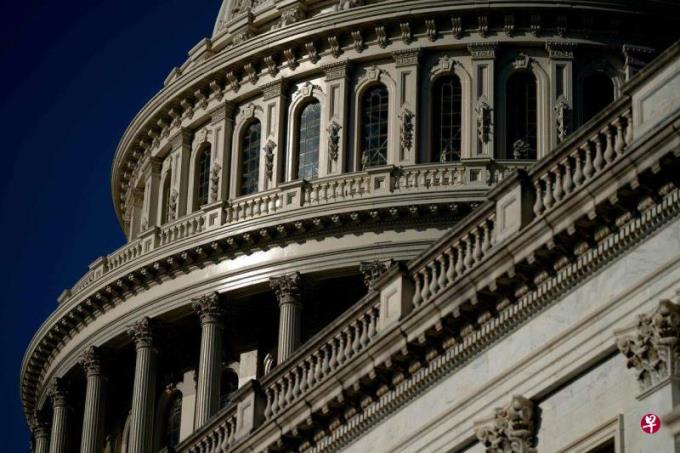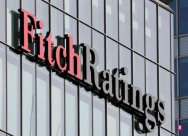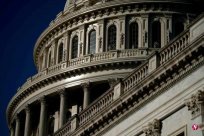
The White House and the Republican leaders of the US Congress are in a "who blinked" competition, and the financial market that has been standing by the breath is about to die.The upper limit of the US government's debt is the focus of the market. The White House officials and Republican representatives have conducted intensive consultations. Both parties have expressed caution and optimism, but they cannot reach consensus.
Powell, chairman of the Federal Reserve Bureau, shouted, paying attention to the financial tightening of the regional bank crisis, and changing the interest rate policy without waiting to return to the 2%target, so that the market's expectations for interest rate hikes in June were slightly easing.However, retail data from US retail data may still be uneasy about raising interest rates in June.Japan's growth data is better than expected, inflation pressure is higher than expected, driving the appreciation of the yen exchange rate.China's April economic data was slightly tired, and the exchange rate of the RMB against the US dollar fell below 7.Japan and German stock markets have reached a new high.
After the US President Biden attended the G7 summit, he rushed back to Washington to deal with the debt limit.The representative of the White House and the Speaker of the House of Representatives McCarthy conducted several rounds of negotiations, but failed to achieve substantial progress. It urgently needed the top figures of both sides to go out and make the final sprint.
The author believes that the two sides can reach an agreement before the Ministry of Finance exhausted its cash, and the time to exhaust cash may be the first time in June.At present, the two sides will still put on a posture of breach of contract in the negotiation to maximize the benefits on the negotiating table.Of course, after the Republican Party insists on the exhaustion of cash, the X-Date called the American media.If this happens, it will have a great impact on the market.
Credit Default Swap, which reflects the market for the market for US debt defaults, has an average of about $ 27 last year, $ 44 a month ago, and now reached $ 52.It seems that the market is worried and no panic.In fact, since 1789, the U.S. government has never breached the contract because it cannot pay the debt principal or interest.
The United States has a strong industrial production data in April, but it is expected to fall in May
In fact, the Ministry of Finance will exhaust cash on June 1, which contains certain water.In case the Ministry of Finance is close to cash, I believe that Yellen will also shrink the payment list, give priority to repayment of principal and interest on government bonds, ensure that it does not breach of contracts, does not reduce the credit rating, and it can slowly slowly.There is a period of time from the United States to the real breach of contract. Regardless of the Democratic Party or the Republican Party, they do not want to let debt default, but both parties are spending the topic of consumption and get some political scores for next year elections.
In April, the industrial production data in the United States was very strong, and it rose 0.4%month -on -month, while market forecasting was zero growth.The author believes that this number will fall in May.Inflation and employment data in April were stronger than expected. Some people in the market discussed the scene where the Fed continued to raise interest rates in June. Individual local Fed officials also expressed this possibility.Observe the effect of tightening policy before.With the current economic situation, the probability of suspending interest rate hikes is greater, but don't forget that this is a "suspension".The Federal Reserve must weigh between inflation, economic recession, and financial stability until one of them has developed significantly.
The US dollar exchange rate has suddenly rebounded recently, causing many people to be caught off guard.The short -term reasons for the rebound are that the market is worried that it will raise interest rates in June, and the first is to worry about the upper limit of debt, but funds will flow into the US dollar area to avoid risks.The US dollar has been extremely oversold, and the market must achieve rectification by adjustment, which is a technical rebound.
China's infrastructure investment growth multiplication effect is poor, industrial production is rare negative growth
The Chinese economy showed signs of slowing growth momentum in April, of which four points are particularly vigilant: 1. Industrial production is rare to turn negative values from the previous month; 2. Investment in fixed assets decreased significantly from the previous month;Significantly lower; 4. The consumption of durable products is relatively sluggish.This year, the central government's special rectification actions and local squeezing data moisture operations have an impact on data. The low base caused by epidemic control last year made the number year -on -year, but the overall decline in economic activities is still an indisputable fact.
The weak retail number of consumer goods is particularly noteworthy.Although the low base promoted the retail sales of consumer goods by 18.4%year -on -year, after the base adjustment, the author estimated that the actual retail growth rate slowed to approximately 0.3%from the previous month.The consumption of retaliated by the media has not brought breakthroughs in the consumption level, which has a lot to do with the downturn of durable consumer products.
From a good perspective, infrastructure investment increased by 7.9%year -on -year, which was slower compared to the strong return growth rate in the first quarter, but in general, it was not weak.At the same time, the price of the service industry has recovered.From a bad perspective, industrial production fell 0.5%month -on -month, which was dragged down by the slowdown in the growth of inside and outside. At the same time, enterprises began to invent.In the absence of an epidemic or external crisis, it is rare for the negative growth of industrial production.
At present, there are two relatively large contrasts in the economy.First, public expenses have spawned infrastructure investment, but insufficient interaction with a wider range of internal circulation, the multiplication effect is not ideal.Second, the gap between the service industry consumption and commodity consumption is very large. Durable consumer goods should be related to the downturn in the real estate market.Private enterprises, real estate and community consumption did not follow the policy stimulus this time. This is the biggest different from the 4 trillion stimulus of the year. The policy has not activated a larger scope of economic activities for the time being.
Japan's weak recovery funds return TOPIX stock indexes more than 14%this year
The Japanese economy increased by 1.6%in the first quarter of this year. It got rid of the negative growth situation of two consecutive quarters in the second half of last year, and Japan followed the economic recession.The consumption rebound during the epidemic period and the influx of a large number of foreign tourists are the main driving force for this round of economic recovery.The Bank of Japan has resolutely implemented extremely loose monetary policy, which has limited stimulus to enterprise investment, but has a great impact on the yen exchange rate.The yen fell to the US dollar exchange rate to the level 30 years ago. A large number of overseas tourists can be seen all over Japan, which is very helpful for the export of service.
Due to the many years of downturn inflation, Japan has not obvious wages rising for a long time.However, the inflation data in recent months has shown an upward trend. The latest April CPI has reached 4.1%. This is the highest level since the 1980s, which has increased the salary of about 5%this year, boosting consumption confidence.Inflation has risen and the economic return growth has provided data support for the central banks intending to adjust monetary policy.
Although this is a weak recovery, it is still a recovery.Coupled with the mid -term bullish of the yen exchange rate, international funds and domestic funds staying overseas have flowed back to Japan, driving the Japanese stock market rising.The Japanese stock index TOPIX rose more than 14%this year, which is the best in the world's five major stock markets.This time, Japanese stocks rose, basically relying on foreign capital inflows, and funds are optimistic about the technological strength and valuation level of top enterprises.
Japan's economic situation has improved significantly, and the policy meeting of Bank of Japan in June has become very important.The author believes that Shitian and men need to give a clearer guidance on the adjustment policy, and they also need to be further explained at the time point.
(Author Tao Dong is the vice chairman of the Greater China in the Asia -Pacific Fortune Management of Credit)




